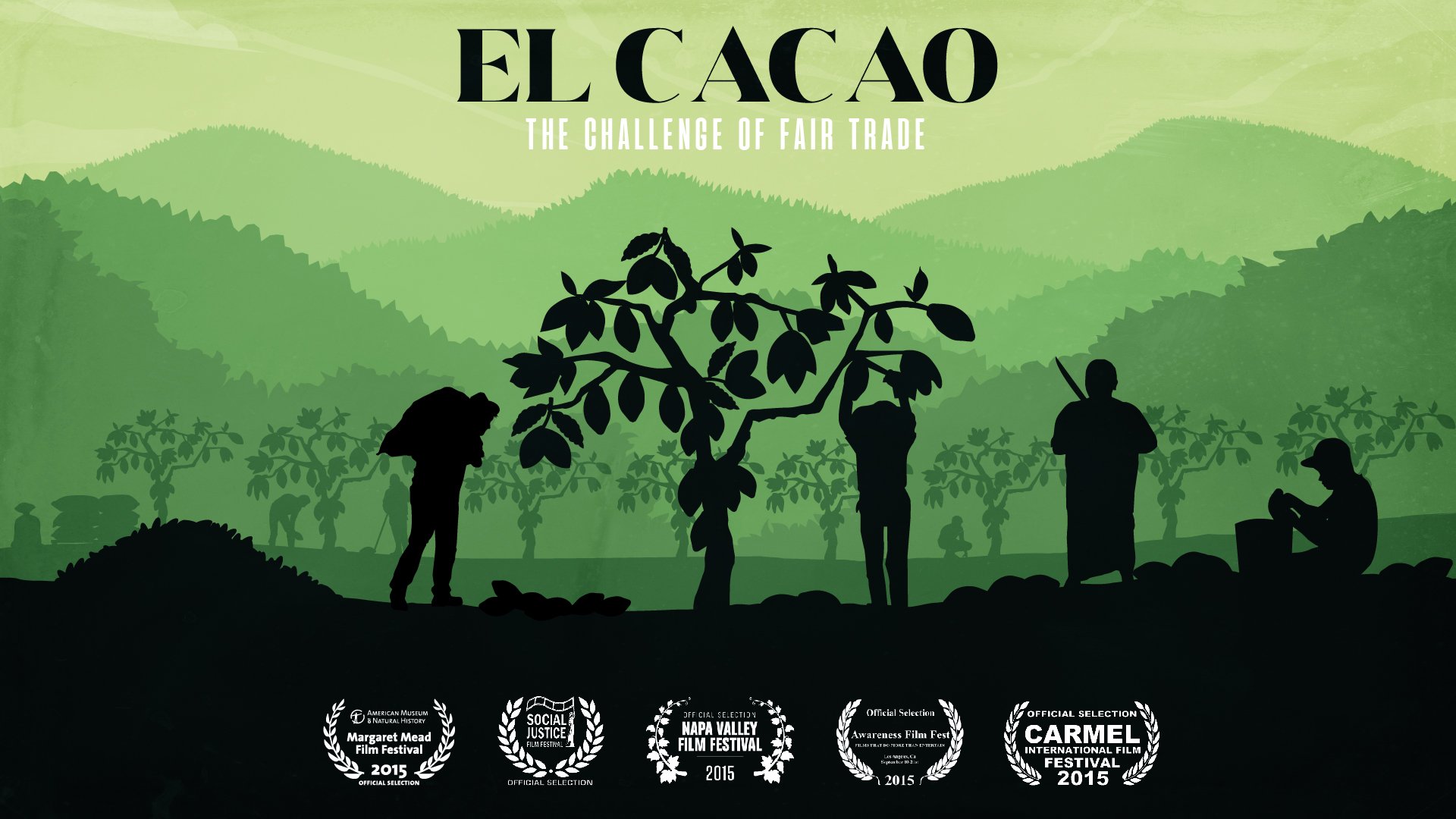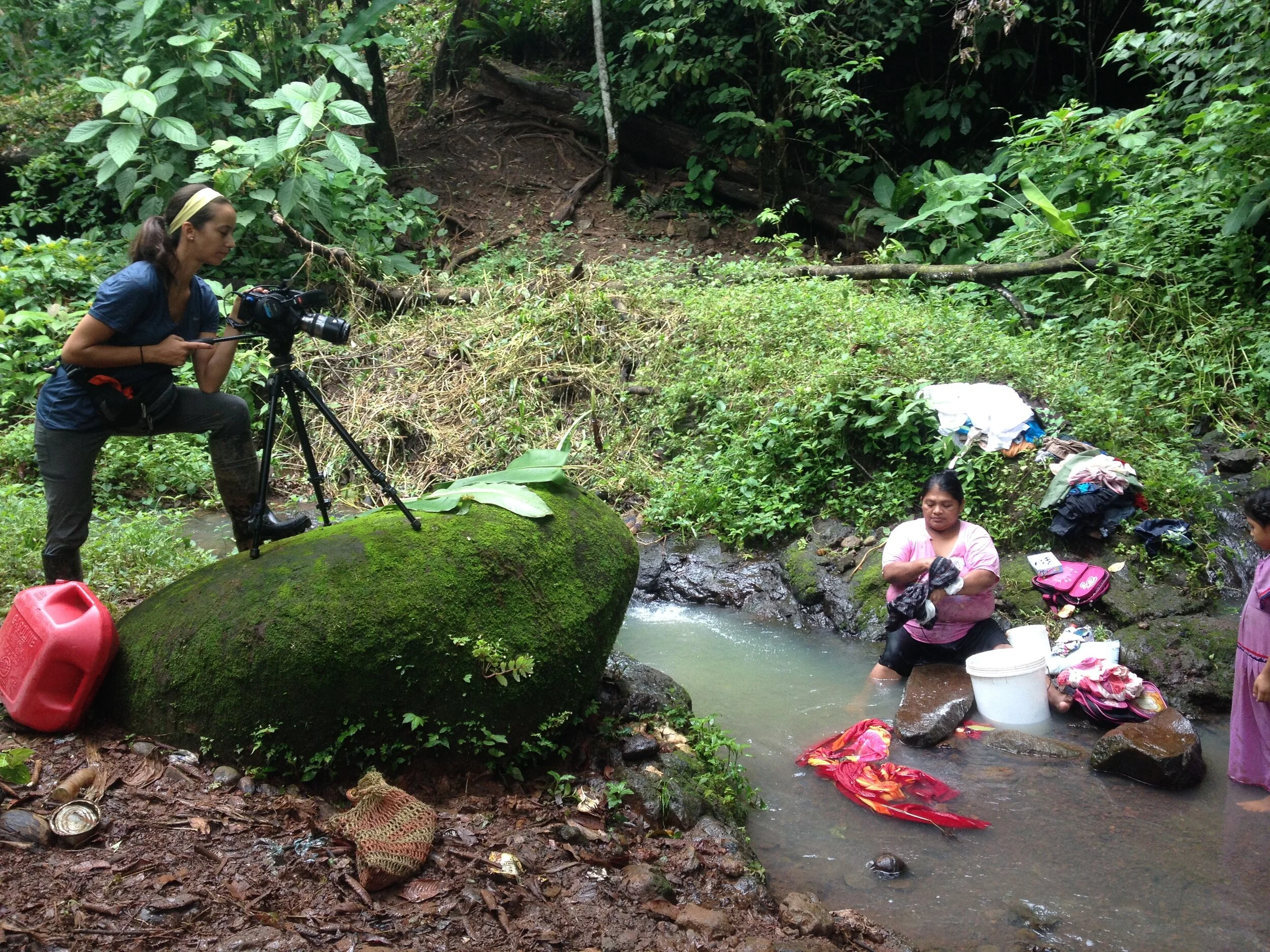EL Cacao
Watch the film on the New Day Films website or on Kanopy.
Download the study guide HERE
RUNNING TIME: 19 minutes
SUBJECTS: Anthropology, Economics, Globalization, Indigenous Studies, Latin American Studies, Sociology, Agriculture, Cultural geography
REVIEW: "El Cacao is a gem of a documentary film. I’ve used it in my class on consumption for a couple of years, and will continue to do so. The film takes you right there, following the farmer and his family’s journey every step of the way through forest clearings, harvesting and processing the beans, dealing with disease, to the culmination: selling the beans to the co-operative market, showing how cacao becomes sheer commodity. Yet it does all this with great efficiency, an ethnographic snapshot that doesn’t outstay its welcome – other documentaries would be twice or three times as long. Along with the excellent accompanying Study Guide for the film, this means class discussions can be more focused and productive. Highly recommended.” -Dr. Mark Paterson Associate Professor, Director of Graduate Studies Department of Sociology University of Pittsburgh
SYNOPSIS: In the lush rainforest of Bocas del Toro, Panama, an indigenous cacao farmer, his wife and grandchildren confront environmental and economic complexities as they grow, harvest and sell cacao beans for a global chocolate market. Does Fair Trade Certification really work? Documenting the exceptional wisdom, unconditional devotion and proven ancient farming techniques of one hard-working Ngäbe farmer, Samuel Murillo, El Cacao complicates the question by examining the fairness of his trade.
El Cacao exposes the dark side of chocolate production in Latin America by examining the economics of Fair Trade from the point of view of the indigenous farmers as they attempt to sustain their community through the growth, harvest, and trade of cacao beans in the global market. This 20-minute documentary film highlights the life of an indigenous Ngäbe farmer in Panama and his unconditional devotion to this so-called “superfood.” The film threads together the themes of neoliberal ideology, human rights, and the economics of the chocolate industry. While the demand for chocolate in developed nations continues to raise, the farmers in developing countries, like Panama, are rarely awarded the economic incentive promised to them.
The film utilizes cinema vérité techniques with candid interviews. Most of the film hinges on intimate shots in personal working and living space within a small Ngäbe community in the Bocas del Toro region of Panama.
Languages: Spanish with English Subtitles
CREDITS: Producer/Director: Michelle Aguilar Editor: Michelle Aguilar Cinematographer: Michelle Aguilar Line Producer: Adam Armstrong Composer: Simón Wilson
Produced in Association with: The UC Santa Cruz, Social Documentation Program
AWARDS:
Finalist for the Eric Moe Sustainability Film Award (DC Environmental Film Festival 2016)
Nominated for IDA David L. Wolper Award (2015) Winner “Best Short”- Social Justice Film Festival (2015)
Winner Alumni Association Award in the Arts Division , UCSC (2015)
OFFICIAL SELECTION:
Big Sky Film Festival (2016)
D.C Environmental Film Festival (2016)
Margret Mead Film Festival (2015)
Social Justice Film Festival (2015)San Luis Obispo International Film Festival (2016)
Docutime (2016)
Awareness Film Festival (2015)
Napa Valley Film Festival (2016)
Carmel International Film Festival (2015)




